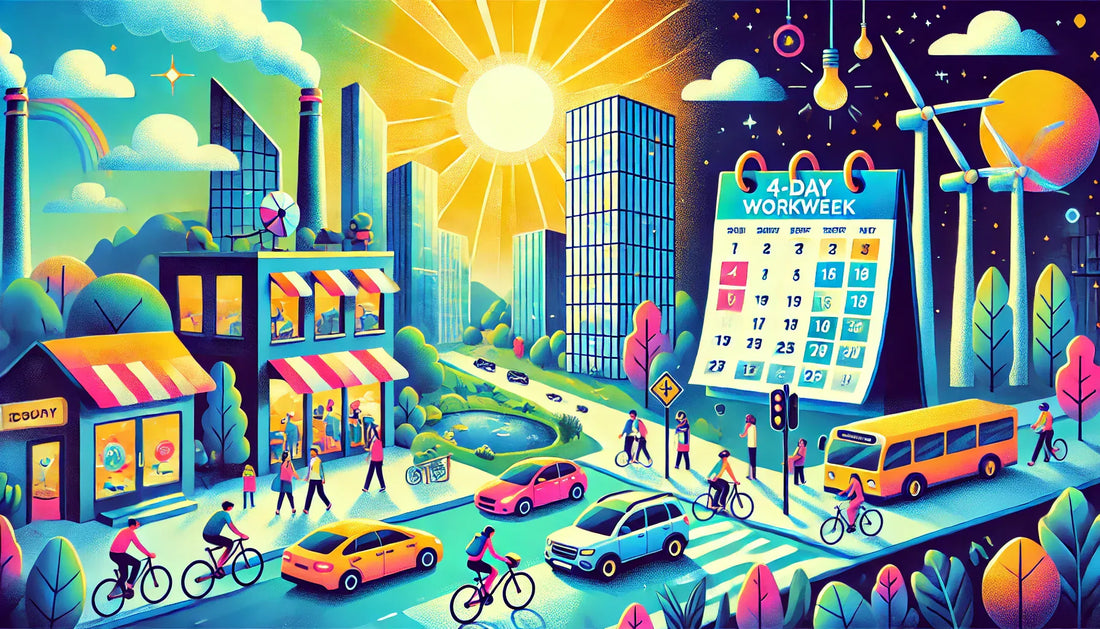What if you could help fight climate change by… working less? No, this isn’t a too-good-to-be-true sales pitch. It’s science. Research shows that shifting to a 4-day workweek could significantly reduce carbon emissions, all while giving you an extra day to sleep in, binge-watch your favorite shows, or finally take up that hobby you keep talking about.
Less Commuting, More Breathing Room
Think about your daily commute. The traffic jams, the honking, the emissions billowing into the air as you crawl at a snail's pace to work. Now, imagine if a huge chunk of the workforce simply stayed home an extra day. Studies suggest that cutting just one workday a week could slash carbon emissions by reducing the number of cars on the road. Fewer cars mean less pollution, less gridlock, and a lot less time listening to that same playlist on repeat.
A report by the UK think tank Autonomy suggests that shifting to a 4-day workweek could decrease the UK's carbon footprint by up to 127 million tonnes annually by 2025—equivalent to removing approximately 27 million cars from the roads. Additionally, research led by economist Juliet Schor found that a 10% reduction in working hours correlates with an 8.6% decrease in an individual's carbon footprint (source, source).
Office Energy Use: The Hidden Culprit
Office buildings are energy-guzzling monsters. Lights, computers, heating, cooling—keeping these spaces operational five days a week demands a staggering amount of electricity. By shifting to a 4-day workweek, companies could cut down on their energy consumption, reducing their carbon footprint and lowering utility bills. It's a win-win-win: good for the planet, good for business, and good for people who spend less time commuting.
Bye-Bye Busywork, Hello Productivity
Here’s the kicker: studies show that a 4-day workweek doesn’t just benefit the environment—it also makes people more productive. When workers have fewer days to complete their tasks, they waste less time and get more done. Less burnout, better work-life balance, and a happier workforce? Sounds like a no-brainer.
The Bigger Picture: A Shift in Lifestyle
A shorter workweek means people have more time to do things that are actually good for the planet—like cooking meals instead of grabbing fast food, walking instead of driving, and, dare we say, finally fixing that leaky faucet instead of letting it drip for eternity. More leisure time encourages sustainable choices, and that adds up in a big way.
Will It Actually Happen?
Many companies and even entire countries are testing the 4-day workweek with promising results. From happier employees to a lighter carbon footprint, the benefits are stacking up. So, while we wait for the world to catch on, you can do your part by advocating for smarter work schedules—or at least by making the case for a ‘no Zoom calls on Fridays’ policy.
One less workday, one big #WinForThePlanet.
Who's ready for a 3-day weekend? Let us know your thoughts in the comments.

